Curated OER
Michigan's Lumbering history: Yesterday, Today, and Tomorrow
Fourth graders explore lumbering in Michigan. For this lumbering lesson, 4th graders examine the life of a modern day lumberjack and how technology can interfere with natural ecology. Students create a list of products from...
Curated OER
Olympic records through time
Students compare the records of gold medal Olympic winners for the last 100 years and decide if we are faster, stronger than in the past.
Curated OER
To There And Back
Young scholars calculate distance on a map by using a mileage scale to calculate the distance from their hometown to Niagara Falls. They, in groups, determine the best route, then compose stories about their journey to Niagra Falls.
Curated OER
Let's Debate - Demonstrating Effective Communication Skills
Students explore and engage in the art of debate. When both sides have been presented each pair have a few minutes to prepare a rebuttal based upon what the opposing side has said. A rubric imbedded in this plan is used as an assessment...
Curated OER
Earthworks
Seventh graders explore watersheds and take samples and analyze the data from a watershed in the area.
Curated OER
Teaching Strategies and Laboratory
Students reflect on a new concept by having the teacher prompt them with a specific question. They use their science handbook to look up keywords within the topic question asked. Students use this only as a rerence to gain knowledge on...
Curated OER
Integrating Critical Thinking Skills Into the Classroom
Students receive an overview of critical thinking techniques. They break into small groups and practice reasoning through questions, identifying, presenting and justifying their answers.
Curated OER
Story Quilts
Students create a classroom story quilt based on a story (or series of stories) read as a group.
Curated OER
The Great Scientists
Students discuss the characteristics of competent scientists. By researching selected scientists on the Internet, they gather and organize collected information into a cohesive paper.
Curated OER
Pathways to the Future
Students draw a pathway and create a movement phrase along that same path using specific movement vocabulary. The phrases are performed in class and rubrics are used for assessment. Meets State standards for the arts.
Curated OER
Nanaotechnology: Small Science, BIG DEAL!
Students read an article that introduces them to the science and applications of nanotechnology. They discuss the the everyday examples of how nanotechnology is and can be used. In small groups, they observe and make inferences about...
Curated OER
Skeletal System
Students discuss the need for humans to have a skeletal system and what would happen if we did not have bones. In this skeletal system lesson plan, students label each bone in the human skeletal system as a group, and then...
Curated OER
Simple Machines
Students define the term simple machine, identify and appreciate their use. In this simple machines instructional activity students complete an activity and share their ideas.
Curated OER
The Scientists’ Way
Students summarize the steps of the scientific method. In this life science lesson, students explain the importance of varying only one variable at a time. They analyze possible flaws in their experiment.
Other
Re:fiction: Making Ends Meet: How to Write a Good Ending to a Story
This article from Re:Fiction magazine offers tips on different ways to end a piece of narrative writing.
Science Buddies
Science Buddies: Scientific Method Conclusion
The conclusion of a science experiment summarizes how your results supported or contradicted your hypothesis. See a sample of a conclusion and find out what makes a good conclusion.
Georgia Department of Education
Ga Virtual Learning: Contemporary Literature: Rhetorical Landscape: Speeches
This lesson focuses on the parts of effective speeches: introduction, body, conclusion and analyzing a contemporary speech. It discusses types of introductions, types of effective conclusions, and the steps to writing a good speech. It...
ReadWriteThink
Read Write Think: Writing Good Endings
This lesson plan explores endings and conclusions to children's literature in an attempt to teach how to successfully write a good ending. Included in the lesson plan are an overview, practice, objectives, resources, preparation, and more.
Other
Livingston: Basic Guide to Essay Writing
This tutorial lists and discusses the steps to writing a good essay and provides a downloadable guide. It also allows you to view a sample essay. W.11-12.2a Intro/Format
Georgia Department of Education
Ga Virtual Learning: "How to Write a Literary Analysis Essay" [Pdf]
This is a nine-page PDF entitled "How to Write a Literary Analysis Essay" which explains in detail the parts of a literary analysis and how to write them.
Other
Hamilton: Essentials of Effective Persuasive Essays
This resource provides good insight on how to structure a well organized effective persuasive essay.
Houghton Mifflin Harcourt
Holt, Rinehart and Winston: Writing a Personal Narrative [Pdf]
A middle school student model of personal narrative writing. Includes a good writing style, examples, and very good notes and annotations as helpful aids for writing success. Points out the introduction, sequence of events and how they...
Joe Landsberger
Study Guides & Strategies: Writing Persuasive Essays
This site focuses on the student learning how to write strong persuasive essays. Strategies are provided to help the student complete a persuasive writing assignment.
Other
Oakland Writes: Student Exemplars: Tenth Grade: Response to Literature [Pdf]
An literary response essay written by a tenth-grader with notes calling attention to important writing concepts evident in the essay including a well-written title and introduction, a strong thesis, supporting details including quotes...



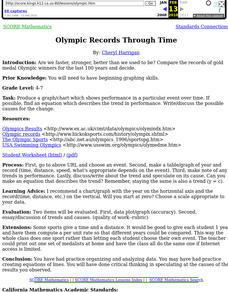
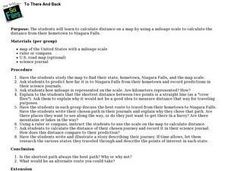

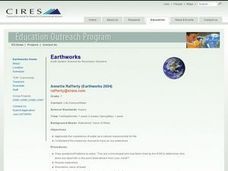

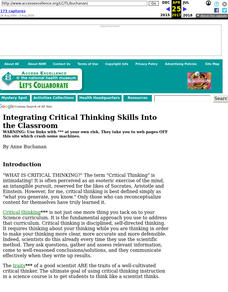

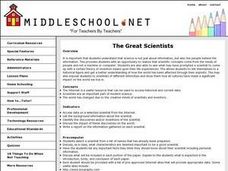



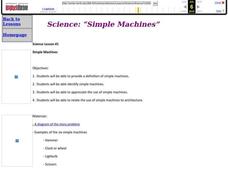
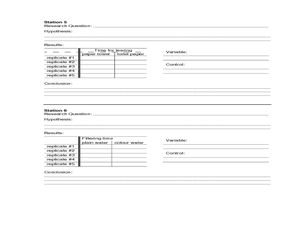



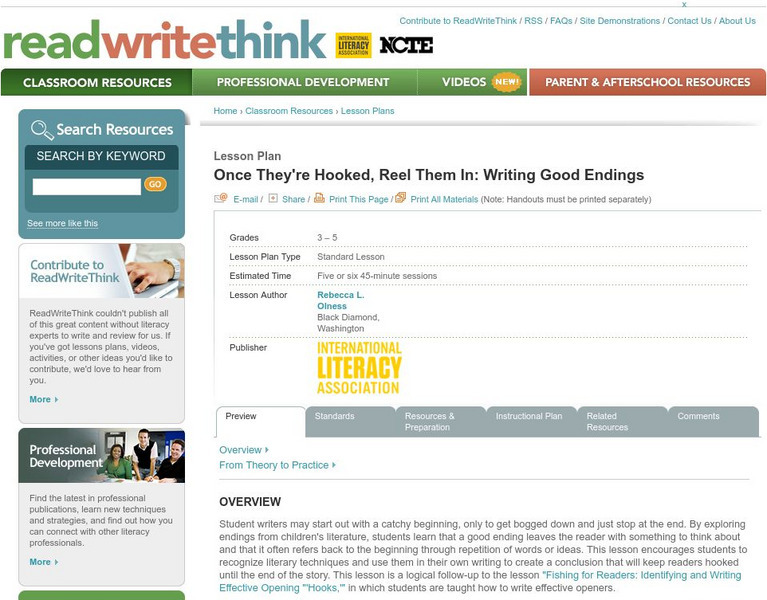

![Ga Virtual Learning: "How to Write a Literary Analysis Essay" [Pdf] Unit Plan Ga Virtual Learning: "How to Write a Literary Analysis Essay" [Pdf] Unit Plan](https://d15y2dacu3jp90.cloudfront.net/images/attachment_defaults/resource/large/FPO-knovation.png)
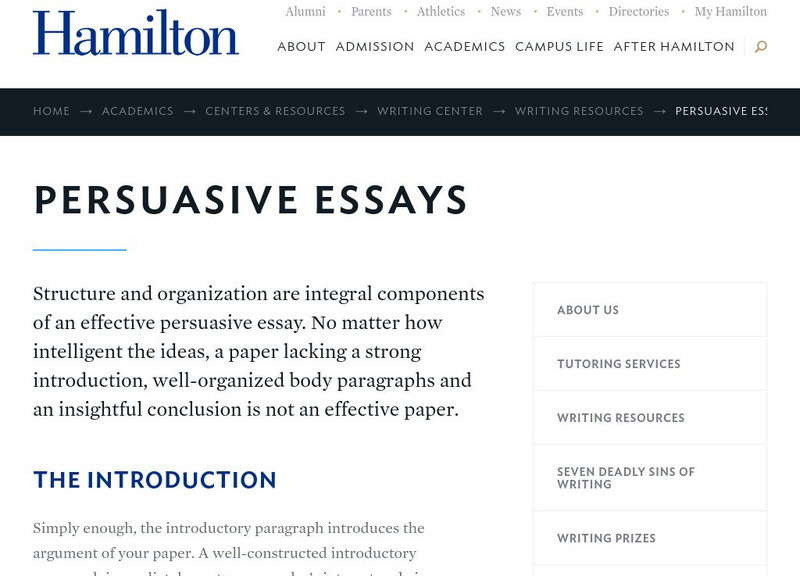
![Holt, Rinehart and Winston: Writing a Personal Narrative [Pdf] Unknown Type Holt, Rinehart and Winston: Writing a Personal Narrative [Pdf] Unknown Type](http://content.lessonplanet.com/resources/thumbnails/410070/large/bwluav9tywdpy2symdiwmduymc0xmtq2ny01njrxbhiuanbn.jpg?1589985236)